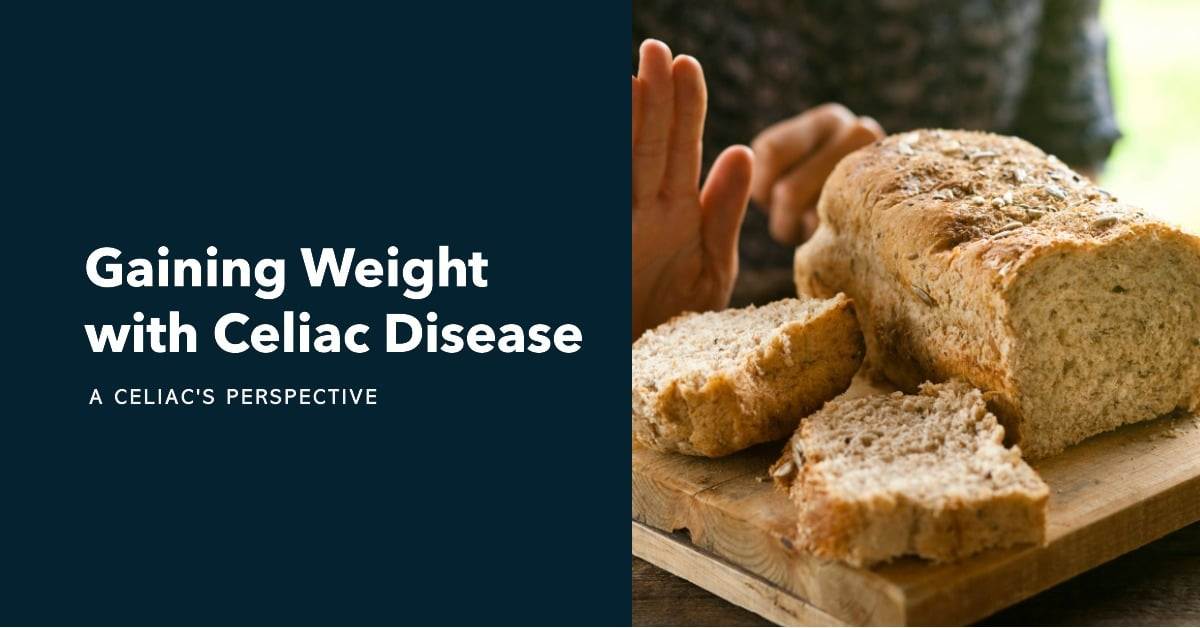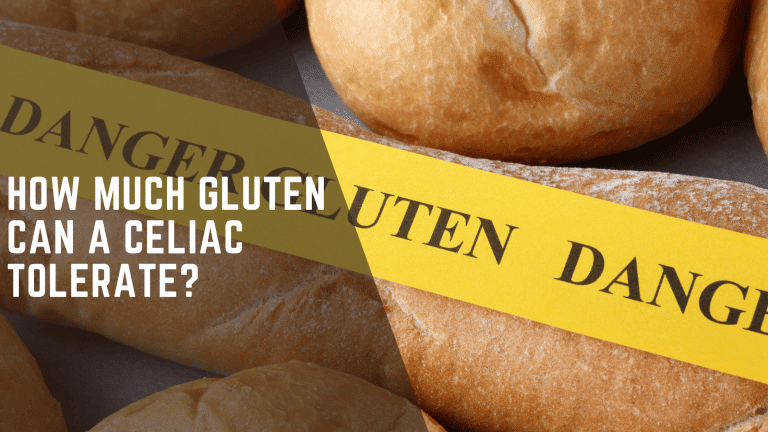Gaining Weight with Celiac Disease: A Celiac’s Perspective

Living with celiac disease isn’t easy.
Adhering to a gluten-free diet, worrying about eating out, and dealing with symptoms after accidentally eating gluten can make it challenging to stay at a healthy weight.
If you’re living with celiac disease and looking for a comprehensive guide on gaining weight from a celiac’s perspective, look no further!
Join me as we explore topics such as how to identify if you are underweight, nutrition strategies for those with gluten sensitivity, why people with celiac disease may accidentally eat gluten, when it may be necessary to see a dietitian, and how to manage bloat.
Let’s get started.
The Mystery Behind Celiac Weight Gain: Unraveling the Enigma
When I first learned about my celiac diagnosis, weight gain wasn’t something that crossed my mind. However, as I delved deeper into the celiac community, I realized that many people struggle with this issue.
The reasons for weight gain in celiac patients can be quite complex and vary between individuals. So, let’s dissect the factors contributing to weight gain before and after a celiac diagnosis.
Weight Gain Before Diagnosis: A Closer Look
Before diagnosis, weight gain in celiac patients can occur due to several factors:
- Malnutrition: Due to intestinal damage, your body struggles to absorb essential nutrients, leading to malnutrition. Consequently, your body might store more fat as a survival mechanism.
- Dysregulated Hunger and Fullness Cues: Celiac disease can disrupt your body’s ability to regulate hunger and fullness, leading to overeating and weight gain.
Weight Gain After Diagnosis: The Healing Paradox
After being diagnosed with celiac disease, you’ll find that you may experience the following:
- Healing of The Small Intestine: As my intestines began to heal on a gluten-free diet, my body started absorbing nutrients more efficiently. This led to weight gain as my body adjusted to its newfound ability to process food.
- Rediscovering the Joy of Eating: After years of discomfort, I could finally enjoy food without pain. This newfound freedom led to increased food consumption, which contributed to my weight gain.
- Dysregulation of Hunger and Fullness Cues (Again): The healing process also temporarily disrupted my hunger and fullness cues, causing me to eat more than necessary.
It’s crucial to understand that celiac weight gain isn’t solely due to indulging in too many gluten-free processed foods or simply overeating.
Numerous factors, such as stress, movement, sleep, hydration, body image, metabolism, genetics, eating environments, and financial status, all influence body size.
Strategies to Manage Celiac Weight Gain: Lessons from My Journey
Managing celiac weight gain has been quite the adventure, and I’ve learned a lot along the way.
Here are some strategies that have helped me navigate this journey while focusing on overall health and well-being rather than just weight.
The Art of Nourishing Your Body
It took some trial and error, but I eventually found that emphasizing nutrient-dense foods made a significant difference.
Fruits, vegetables, lean proteins, whole grains, nuts, and seeds provided essential nutrients that supported my body’s healing process.
I realized that the food I chose to eat played a pivotal role in weight management.
Learning how to know if something is gluten-free is also essential if you’re living life as a celiac!
Finding Joy in Movement
Exercise doesn’t have to be a chore; it can actually be a source of joy! Whether it’s brisk walking, jogging, swimming, or dancing, physical activity can bring me a sense of purpose, accomplishment, and even bliss.
I find that when I move with a positive outlook and open mind, the results are infinitely more rewarding than if I go at it with dread and resignation.
So why not give it a try? Getting up, getting moving, and finding joy—it’s all possible!
Tackling Stress Head-On
Navigating life’s stressors is no small task. To tackle it head-on, I’ve explored various stress-reduction techniques, including meditation and deep breathing exercises.
For me, regular breaks and time in nature have proved to be the most effective, allowing me to recenter and de-stress.
After all, when we’re able to manage our stress levels, the benefits are not just emotional – they can also be physical. By managing stress, we may reduce our risk of weight gain on a gluten-free diet.
Sleep: The Unsung Hero
Sleep is like a superhero we rarely get to acknowledge.
We all know it’s important, but its power to help prevent weight gain by regulating our hunger and fullness cues is underrated.
As someone sticking to a strict gluten-free diet, I’ve experienced firsthand the effect inadequate sleep can have on my body – and seen how much of an impact proper rest can have when it comes to avoiding weight gain.
Incorporating regular, quality sleep into your lifestyle is key for those hoping to lose weight or maintain a healthy diet – especially those on restricted diets like gluten-free.
Prioritizing adequate sleep will not only help you feel more energized and balanced during the day but also reduce cravings and eliminate any extra pounds from sneaking up on you.
Seeking the Help of Professionals
For people with celiac disease, introducing gluten-free foods into their diets is a unique challenge. Striking the right balance between health and pleasure can be difficult, especially if you don’t have the right support.
Seeking help from healthcare professionals (such as a celiac dietitian or IBS specialist like I did) is key to finding relief and maintaining wellness.
With their guidance, I was able to learn more about the intricacies of celiac disease and gain a better understanding of how my body reacts to gluten.
Plus, addressing underlying mental health issues related to body image and my relationship with food proved invaluable in my journey towards healing.
Embracing a Holistic Approach: A Celiac’s Perspective
Gaining weight with celiac disease is a multifaceted issue that extends beyond food choices.
By adopting a holistic approach, I’ve learned to manage my weight while living with celiac disease. I hope my insights and experiences can help others navigate this challenging journey.
For more information on living with celiac disease and IBS, feel free to explore my extensive resources and find out more about my story.
If you have any questions or concerns, don’t hesitate to get in touch. Together, we can support and empower each other on our gluten-free journeys!
Disclaimer: This content is based on my personal experience as an individual diagnosed with celiac disease and IBS (Irritable Bowel Syndrome) who follows a strict gluten-free diet. This does not constitute medical advice. Please consult a medical professional, nutritionist, or qualified dietitian for personalized, professional advice.






